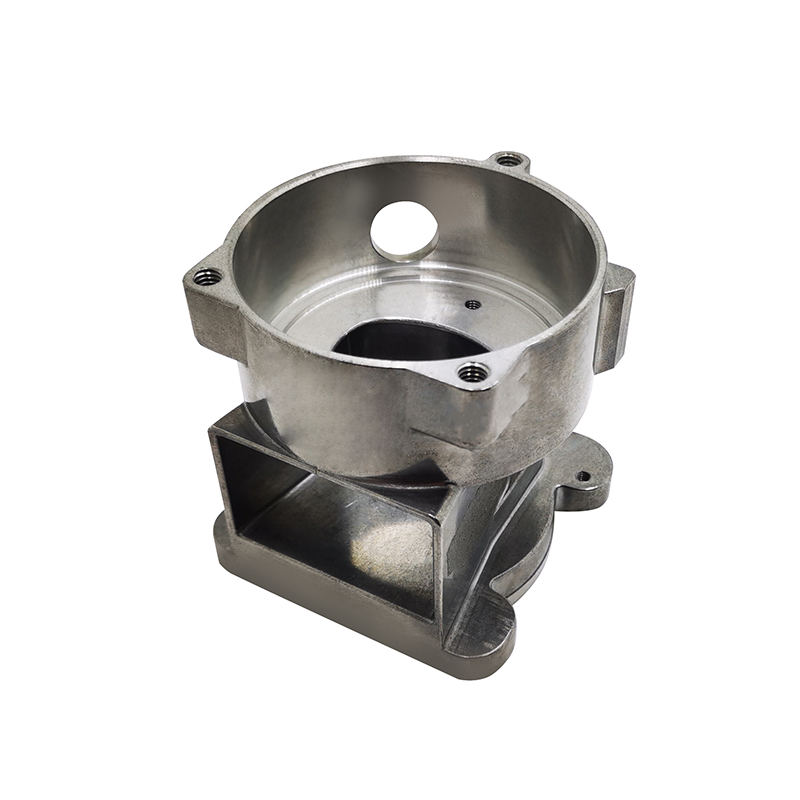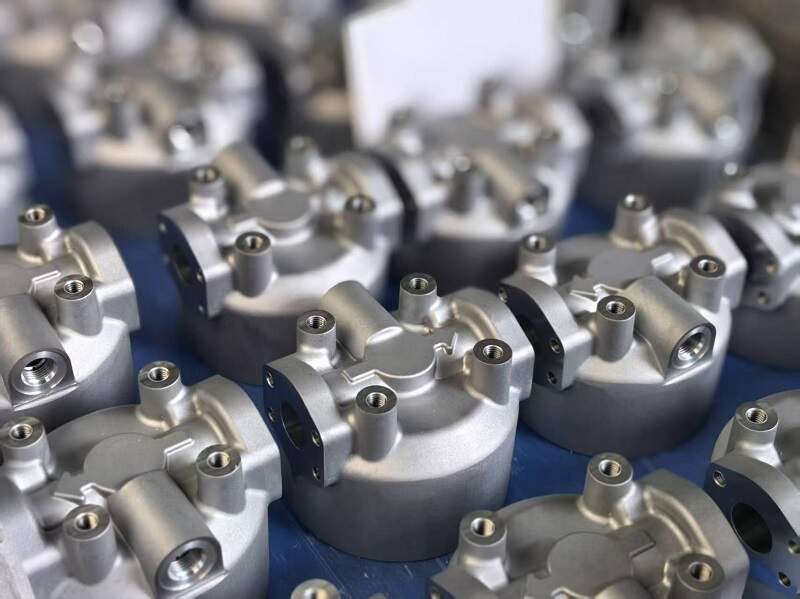Ten Must-Know Advantages Why Precision aluminum casting is Transforming Modern Manufacturing
Discover the Advantages of Aluminum Casting in Modern Production
Aluminum casting has actually arised as a crucial procedure in modern-day manufacturing. Its light-weight yet durable nature offers considerable benefits for numerous sectors. The capability to achieve elaborate layouts and preserve tight tolerances contributes to its charm. aluminum casting. In addition, the cost-effectiveness and environmental advantages make it a lasting selection. As suppliers seek ingenious services, the duty of aluminum casting proceeds to advance. What particular applications and benefits await exploration in this vibrant field?
Light-weight Yet Strong: The Advantages of Aluminum
Many products are made use of in manufacturing, aluminum stands out due to its remarkable mix of light-weight residential properties and outstanding stamina. This one-of-a-kind feature makes aluminum an ideal option for various applications, particularly in industries such as automotive, aerospace, and building and construction. Its low density enables simpler handling and transport, adding to lowered energy consumption during manufacturing and assembly processes.
Aluminum's strength-to-weight ratio is excellent, enabling suppliers to develop long lasting components without including unnecessary mass. This characteristic is specifically important in fields where weight reduction can cause boosted fuel effectiveness and overall performance. Additionally, aluminum's resistance to rust boosts the longevity of products, additionally strengthening its appeal in modern manufacturing.
Inevitably, the light-weight yet solid nature of aluminum positions it as a favored product, cultivating innovation and efficiency across several markets. Suppliers increasingly acknowledge that these advantages can lead to considerable developments in style and capability.
Precision and Complexity in Design
As makers welcome the capabilities of aluminum casting, they discover brand-new opportunities for precision and intricacy in style. This manufacturing process enables the development of elaborate shapes and comprehensive functions that conventional methods typically have a hard time to accomplish. The fluidity of molten aluminum enables it to fill up complicated mold and mildews, causing parts with limited resistances and great surface area coatings.
This precision is specifically useful in markets such as aerospace and vehicle, where specific requirements are crucial for performance and safety. Aluminum casting also accommodates innovative styles that improve performance without endangering architectural honesty.

Cost-Effectiveness and Performance
Cost-effectiveness and efficiency are extremely important considerations for suppliers checking out aluminum casting as a manufacturing approach. Aluminum casting deals significant cost benefits as a result of its reduced product costs compared to other metals (aluminum casting). The lightweight nature of aluminum lowers shipping and handling expenditures, and its excellent thermal conductivity permits quicker cooling times throughout the casting process, improving total manufacturing speed
Moreover, aluminum's flexibility allows producers to create intricate shapes and layouts, lessening the requirement for additional machining or assembly. This streamlining of production not just minimizes labor expenses but additionally reduces preparations, enabling firms to react promptly to market needs.
In addition, the resilience and corrosion resistance of aluminum castings contribute to longer item life-spans, lowering substitute expenses gradually. Therefore, makers can achieve an equilibrium of high-quality result and minimized functional expenses, making aluminum casting an increasingly attractive alternative in contemporary manufacturing.
Ecological Sustainability of Aluminum Casting
Aluminum casting attracts attention as an ecologically sustainable production option, particularly as a result of its recyclability and minimized ecological impact. The procedure enables the reliable use aluminum, a material that can be reused indefinitely without shedding its homes. This characteristic substantially reduces the demand for virgin aluminum, thus saving all-natural resources and lessening energy intake associated with extraction and processing.

Applications Across Industries: From Automotive to Aerospace
While diverse markets proceed to seek ingenious materials for production, aluminum casting has proven to be a versatile service across fields such as auto and aerospace. In the vehicle sector, aluminum castings add to light-weight lorry designs, boosting gas effectiveness and performance. Elements like engine blocks, transmission real estates, and wheels take advantage of aluminum's strength-to-weight proportion.
Similarly, in aerospace, aluminum casting plays a substantial duty in producing complicated parts that need high durability and low weight. Aircraft parts such as braces, landing equipment, and structural structures use aluminum for peak performance and security.
Additionally, the versatility of aluminum casting enables it to satisfy other sectors, including customer electronics, aquatic, and industrial equipment. This convenience not only fulfills the details demands of numerous applications however also supports recurring technology in manufacturing procedures. Consequently, aluminum casting stays a principal in modern-day manufacturing across many sectors.
Often Asked Questions
How Does Aluminum Casting Contrast to Other Steel Casting Processes?
Aluminum casting deals premium strength-to-weight ratios, faster cooling prices, and superb deterioration resistance contrasted to various other metal casting processes. These advantages make it perfect for various applications, boosting efficiency and performance in production.
What Are the Regular Lead Times for Aluminum Casting Projects?
Normal preparation for aluminum casting jobs range from two to 8 weeks, relying on factors such as complexity, order size, and production capacity. Efficient preparation can aid lessen hold-ups and improve project timelines.
Can Aluminum Casting Be Used for Intricate Layouts?
Aluminum official statement casting can without a doubt suit intricate layouts. aluminum casting. Its fluidity allows for comprehensive patterns and forms, making it appropriate for complex parts in different sectors. This adaptability enhances style freedom while maintaining structural stability and performance
What Post-Processing Options Are Readily Available After Aluminum Casting?
Post-processing alternatives for aluminum casting consist of machining, brightening, surface area therapies, anodizing, and welding. These strategies boost the coating, boost dimensional precision, and boost deterioration resistance, thereby optimizing the final product's performance and visual charm.
Just How Do Temperature Level Adjustments Influence Aluminum Casting Quality?
Temperature modifications greatly impact aluminum casting quality by affecting fluidity, solidification prices, and possible issues. Fast cooling can cause raised brittleness, while excessive warm may cause warping or incomplete filling of molds during casting.
Aluminum casting has actually arised as a critical procedure in modern production. As manufacturers accept the capacities of aluminum casting, they discover new methods for precision and complexity in design. Aluminum casting procedures normally generate image source fewer greenhouse gas discharges contrasted to other metal casting techniques. While varied sectors proceed to seek cutting-edge materials for production, aluminum casting has actually shown to be a flexible solution throughout sectors such as vehicle and aerospace. In the auto market, aluminum spreadings add to light-weight vehicle designs, improving gas effectiveness and performance.